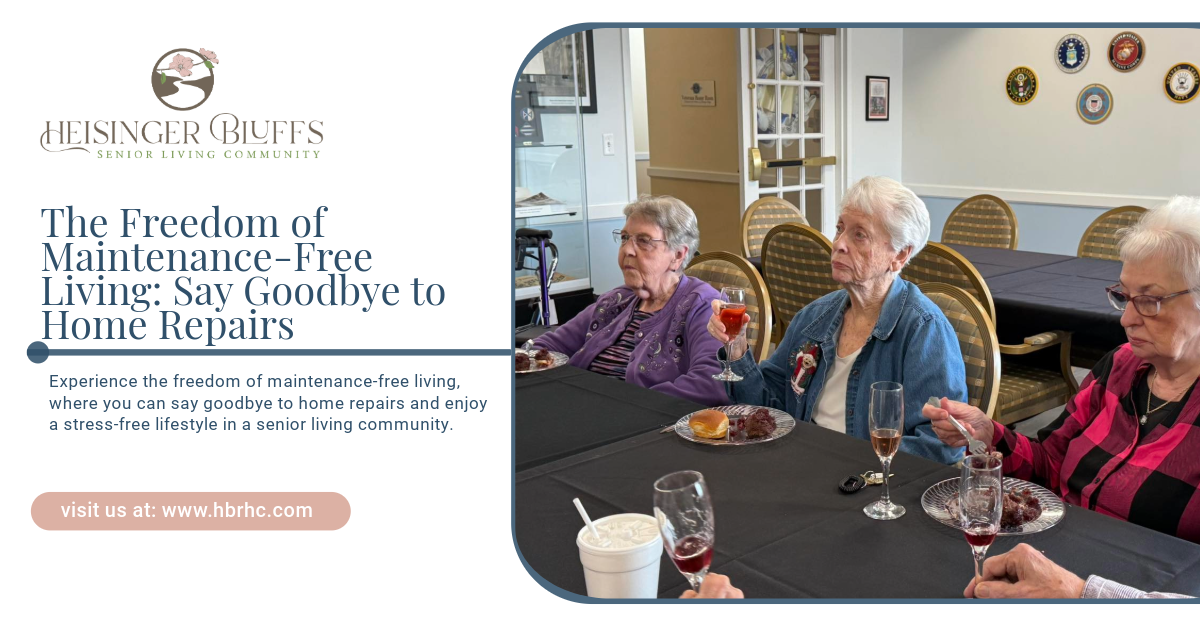Balancing Independence and Support in Long-Term Senior Care

As people age, many seniors face the challenge of needing additional support while still wanting to maintain their independence. Long-term care is designed to provide seniors with the necessary medical and personal assistance while ensuring they retain a sense of dignity, autonomy, and independence. The goal of effective long-term care is to strike a balance between these two vital aspects—offering the support that seniors need to live comfortably while empowering them to remain as self-sufficient as possible.
This blog explores how long-term care services are designed to meet this balance and the many ways seniors can thrive with the right mix of support and independence.
Understanding Long-Term Care
Long-term care refers to a range of services designed to assist individuals who need help with daily activities or medical care over an extended period. This care is typically needed by older adults who face challenges due to chronic illness, injury, or age-related health issues. Long-term care services can include assistance with activities of daily living (ADLs) such as bathing, dressing, and eating, as well as more complex medical care like administering medications or managing chronic health conditions.
While the need for assistance may increase with age, seniors often express a desire to remain independent for as long as possible. Maintaining autonomy is closely linked to a sense of self-worth and dignity, making it an essential aspect of long-term care.
Why Balancing Independence and Support Matters
For many seniors, one of the biggest fears associated with aging is the potential loss of independence. They may worry about losing control over their lives, which can lead to feelings of anxiety or depression. On the other hand, the reality of physical and cognitive decline means that many seniors require assistance to maintain their quality of life.
Balancing independence and support in long-term care is essential because:
- Promotes Emotional Well-Being: Seniors who feel in control of their own lives are more likely to experience higher levels of happiness and reduced feelings of helplessness. This sense of control is linked to better emotional and mental well-being.
- Preserves Dignity: Dignity is a critical factor in providing care to older adults. When seniors are given the opportunity to make choices about their daily activities and personal preferences, they feel respected and valued.
- Encourages Active Participation: Promoting independence encourages seniors to stay engaged in their own care, which can lead to a greater sense of purpose and motivation.
- Enhances Physical Health: Independence often encourages physical movement and activity. Even simple tasks like dressing or grooming, when performed independently, can help maintain strength and coordination.
How Long-Term Care Balances Independence and Support
There are several key strategies that long-term care providers implement to ensure that seniors receive the support they need while still allowing them to remain as independent as possible.
1. Tailored Care Plans
A personalized care plan is an essential aspect of long-term care that ensures a balance between independence and support. Every senior’s needs are unique, and a one-size-fits-all approach is rarely effective. Care providers work closely with residents and their families to create care plans that are tailored to individual needs, abilities, and preferences.
These plans include details about the level of assistance needed for daily activities, medical care requirements, and specific personal preferences. For example, one resident may only require help with bathing, while another may need assistance with dressing or managing medications. The key is to provide support where necessary while encouraging the resident to take the lead in areas where they are still capable.
By tailoring care plans, long-term care facilities can promote a sense of independence, allowing seniors to maintain control over their daily lives while still receiving the necessary support.
2. Encouraging Active Participation
Encouraging seniors to participate in their care decisions is a key strategy for maintaining their independence. When seniors are involved in decisions about their daily routines, medical treatments, or personal preferences, they feel empowered and valued.
Long-term care staff often engage residents in conversations about their preferences, from meal choices to activities they enjoy, ensuring that their input is considered in their care. This involvement can significantly enhance a senior's quality of life by fostering a sense of control and self-worth.
3. Offering a Range of Activities
Engaging in physical, social, and cognitive activities is essential for maintaining both physical and mental health as people age. Long-term care facilities offer a variety of programs that encourage seniors to stay active, make choices, and socialize with others.
Physical activities such as group exercises, walking clubs, or yoga sessions can help seniors maintain mobility and strength. Cognitive activities like puzzles, trivia games, or book discussions keep the mind sharp. Social events, including movie nights, craft sessions, and group outings, encourage connections and community involvement.
By offering these activities, long-term care facilities give seniors the opportunity to choose how they spend their time, promoting independence while also providing structure and support when needed.
4. Maximizing Independence in Daily Living
While some seniors may need assistance with certain ADLs, they may be able to handle other tasks independently. In long-term care settings, staff are trained to recognize when to provide assistance and when to step back, allowing residents to manage daily tasks on their own.
For example, a senior who needs help getting dressed may still be able to brush their teeth or prepare a light snack. Encouraging seniors to perform tasks they are capable of not only helps maintain their independence but also fosters a sense of accomplishment and self-sufficiency.
Caregivers are also mindful of supporting residents in a way that preserves their dignity. Instead of taking over tasks completely, staff often provide gentle guidance or partial assistance to allow the senior to remain as involved as possible.
5. Promoting Social Engagement
Social connections play a significant role in maintaining emotional and mental well-being. Long-term care facilities provide various opportunities for socialization, ensuring that residents remain connected to their peers and the broader community.
By creating a supportive environment that fosters social interaction, residents can form friendships, engage in meaningful conversations, and participate in shared activities. This social engagement helps reduce feelings of isolation and loneliness, which are common concerns among seniors.
The sense of community in long-term care facilities also enhances independence by giving residents the confidence to try new activities, share experiences, and offer support to others.
6. Providing Medical Support While Preserving Autonomy
Long-term care facilities are equipped to manage complex medical conditions and provide necessary healthcare services. However, they do so while preserving the autonomy of residents. Seniors are encouraged to be involved in decisions about their medical treatments, and they often have the opportunity to discuss care options with healthcare professionals.
Residents may receive support for managing chronic conditions like diabetes, heart disease, or arthritis. Nursing staff assist with medication management and ensure that healthcare needs are met, but they also prioritize educating residents about their conditions, empowering them to participate in their own healthcare as much as possible.
Medical support in long-term care is designed to enhance residents' well-being while allowing them to retain a sense of control over their health and wellness.
7. Promoting Safety Without Sacrificing Independence
Safety is a top priority in long-term care settings, but promoting independence doesn’t mean sacrificing safety. Care providers take measures to ensure that residents can safely navigate their environment while encouraging them to do as much as possible on their own.
Assistive devices such as handrails, walkers, or grab bars are often used to support mobility, while staff are always nearby to provide assistance if needed. These safety measures allow residents to remain active and independent while minimizing the risk of accidents or injuries.
Care providers are also trained to recognize signs of declining health or changes in a resident's abilities, adjusting care plans as needed to ensure both safety and independence are maintained.
Choosing a Long-Term Care Facility That Values Independence
When selecting a long-term care facility, it’s essential to choose one that understands the importance of balancing support with independence. The right facility will offer a wide range of services designed to meet individual needs while promoting autonomy, dignity, and self-sufficiency.
Look for a long-term care facility that:
- Encourages residents to participate in their care decisions
- Offers a variety of physical, cognitive, and social activities
- Provides personalized care plans tailored to individual abilities
- Promotes safety without compromising independence
- Involves families in the care process and respects residents' preferences
Many facilities offer tours or trial stays, giving potential residents and their families the chance to experience the care environment firsthand and determine whether it aligns with their values and needs.
Conclusion
Balancing independence and support is crucial in long-term senior care, ensuring that residents feel empowered, respected, and dignified while receiving the care they need. Whether through personalized care plans, engaging activities, or medical support, long-term care facilities play a pivotal role in enhancing seniors' quality of life while promoting self-sufficiency.
At Heisinger Bluffs, we understand the importance of maintaining this delicate balance. Our community is dedicated to providing comprehensive care that supports both the physical and emotional well-being of our residents, helping them lead fulfilling, independent lives.











